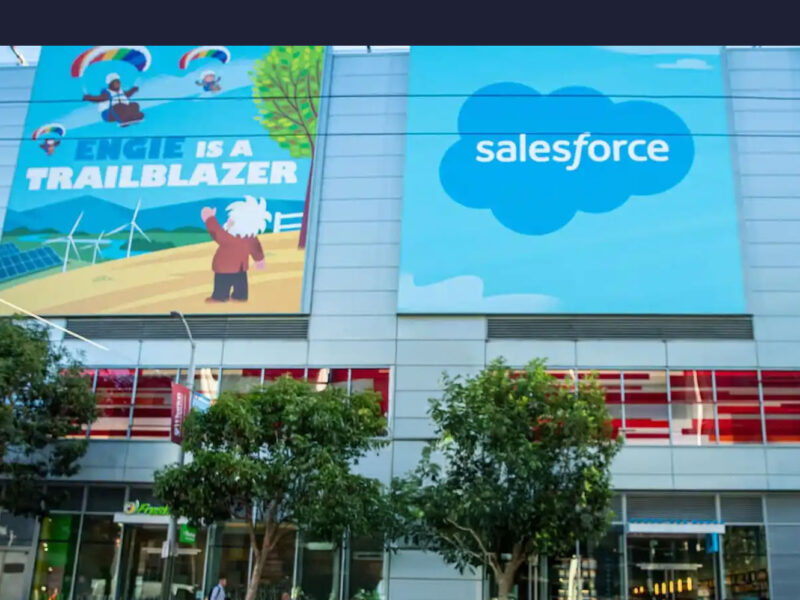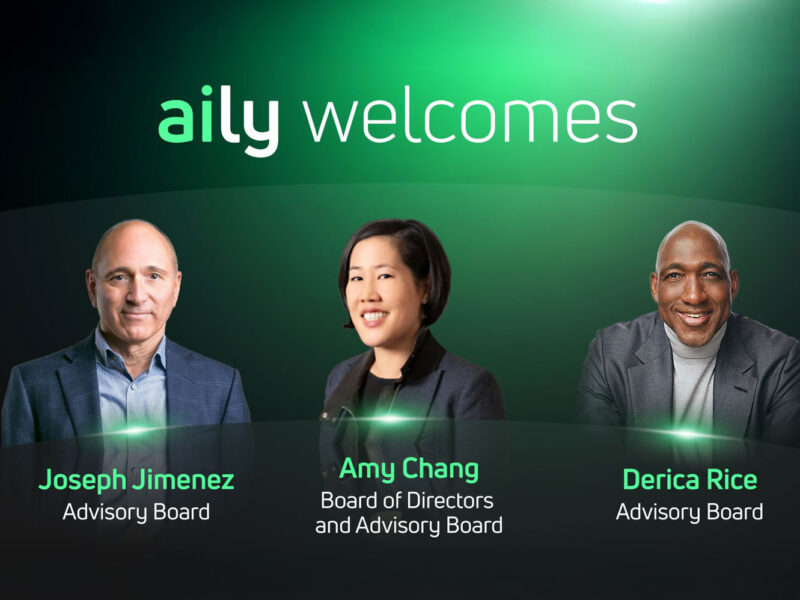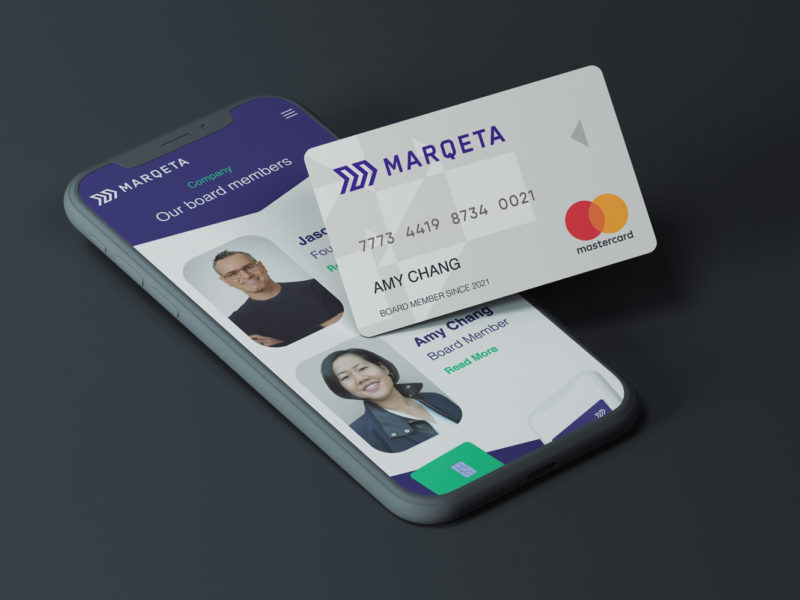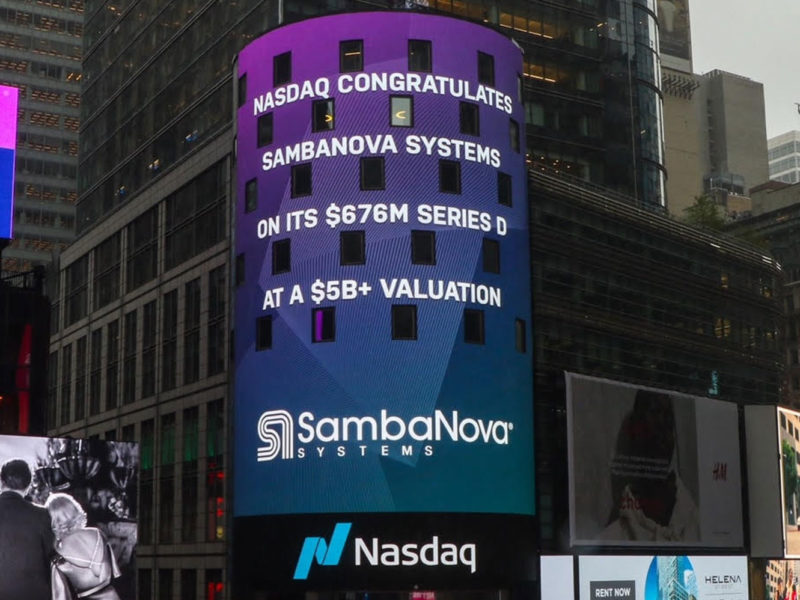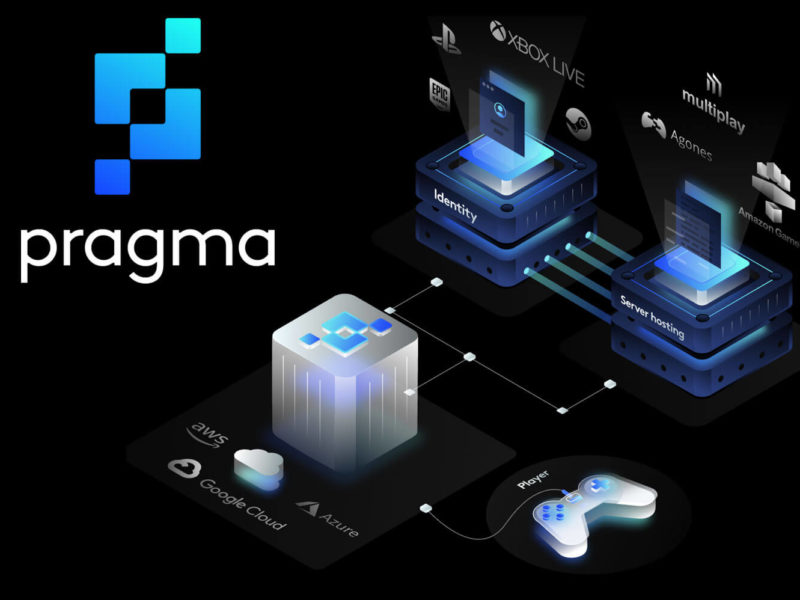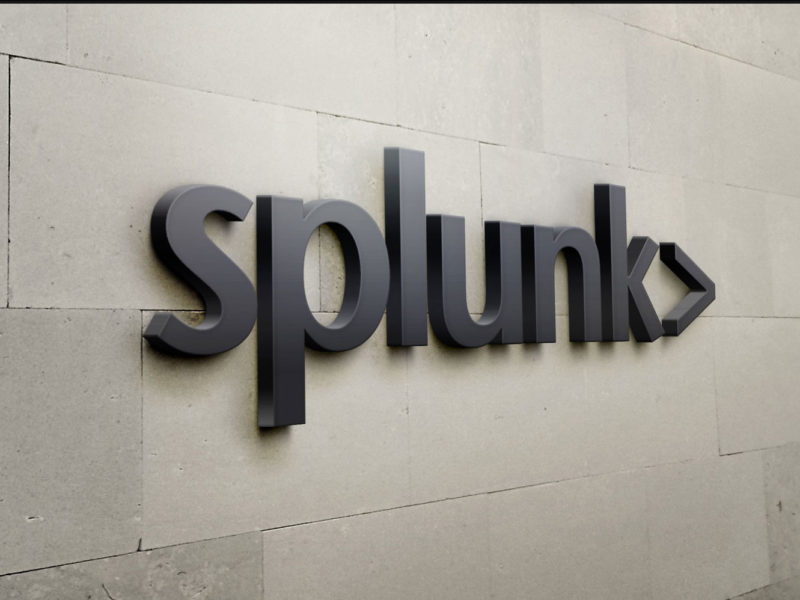08 Dec Lessons From the Boardroom 2021 Carta Equity Summit
Lessons From the Boardroom at Carta’s 2021 Equity Summit
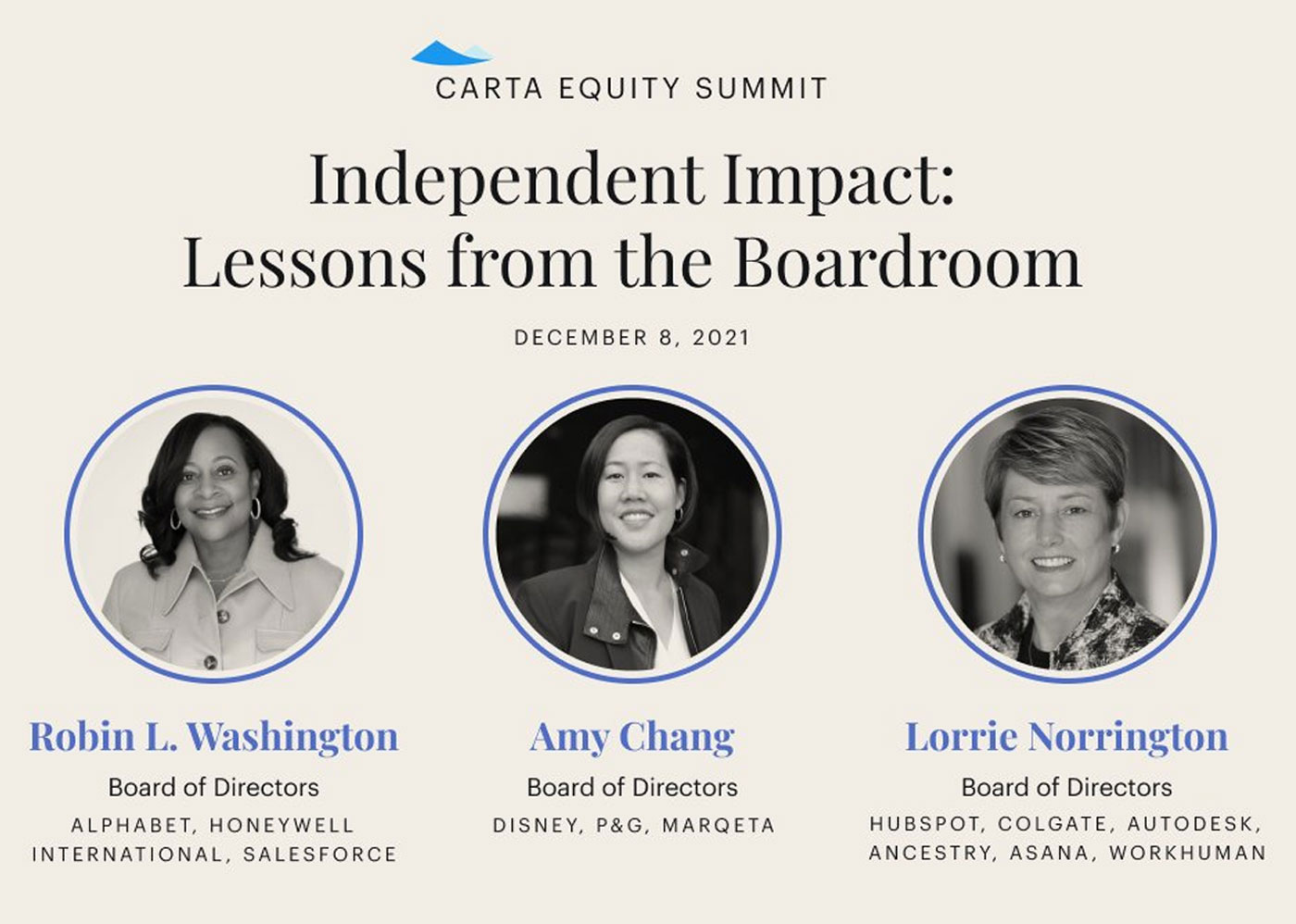
Corporate boards oversee the governance of public and private companies. But they also provide wisdom and guidance to company executives. “You help people learn through experiential learning and storytelling,” said Lorrie Norrington in a panel from the 2021 Carta Equity Summit. Lorrie was joined by Amy Chang, Robin Washington, and moderator Jane Alexander to discuss their motivations for joining corporate boards, techniques for exerting influence, and how corporate boards can shape the future of society.
“if you walk into the boardroom not taking a judging attitude, but taking a listening and participant approach, it makes a huge difference. You’re there to bring value…
you’re providing oversight as a board member, as opposed to as an operator”@LorrieNorring pic.twitter.com/7BgFnccYuY
— Ron Pragides (@mrp) December 12, 2021
Pumped to be joining an EPIC group of #sheros tomorrow with @cartainc – @annewoj23 @smc90 @kirstenagreen @juliebornstein @mojism @GwynethPaltrow #jenniferjustice @KatieS @lindseyvonn @_amychang @TheLisaWu @janealexand #janealexander @deenashakir @karanortman @julesyoo 🤩🤩🤩🤩🤩 https://t.co/LfYgx75dzg
— GerenLockhart.eth (@gerenlockhart) December 8, 2021
After every board meeting, maybe take half an hour and reflect on, “What does this mean for the team that I’m leading? What did I miss? And how do I get better? How do I look at the great example that these people are setting—and how do I learn from that?” It goes back to the learning theme.
Quick Takes
Mindset Shift
That was a big mindset shift between operating mode and board mode. A lot of people are still going to be operating while they’re also attending board meetings. You have to stop yourself, because I have a tendency to want to jump in and say, “OK, what about this?” and “Do we try this?”—and boy, that’s not your role, right? That’s something you have to keep in mind, and just try to pull back: You’re not management, you’re on the board. Your whole thing is to ask questions and allow them to do the work and to have the answers—to ask questions and be a level up. I think there’s a strong instinct to get in there because we’re all operators and that’s why we were useful for the board in the first place
Shaping Board Culture
One of the things that both Lorrie and Robin have talked about is figuring out, “Is this going to be a good fit stylistically?” Are you going to be a good fit for this board? And the fascinating part, to me, in joining private boards and taking them public, was that you’re a huge part of the formation of the culture of that board. You have to take such an active role.
Being a Lifelong Learner
I will tell you, every single board meeting that I’ve been to, I’ve taken down a page or two of action items to take back to my own team, to take back into my operating role. So Robin’s point around learning and Lorrie’s point around being a lifelong learner in all regards—I think that holds so true.
✨ like @GwynethPaltrow @annewoj23 @abarrallen @alexavontobel @_amychang @annbordetsky @arielasafira @eurie_kim @jess @HarryStebbings @julesyoo @km @karanortman @kirstenagreen @KelvinBeachumJr @lindseyvonn @MacConwell @rebeccakaden @reshmasaujani @tristanwalker @wolfepereira
— Deena Shakir (@deenashakir) December 9, 2021
Transcript

Jane Alexander, CMO of Carta:Thank you all so much for joining us for this session with Amy, Lorrie, and Robin. We are so grateful to have you all here. Thank you for making the time.
I’ll introduce each of our panelists today and then we’ll dive into some questions with genuinely some of the most impressive women that I’ve ever met.
Amy, I’ll introduce you first. Amy is on the board of directors for Disney, Procter & Gamble, Marqeta, SambaNova, and Pragma. She has previously served on the boards of Cisco, Splunk, and Informatica, which encompass nearly a trillion dollars in total market cap. Post acquisition of her startup company—of which I was a very happy user—by Cisco for $270 million, she led Cisco’s multibillion-dollar collaboration business.
Lorrie serves on the board of directors at Hubspot, Colgate, Autodesk, Ancestry, Asana, and Workhuman. She has more than 30 years of experience in technology, software, and internet businesses. She’s an operating partner at Lead Edge Capital and the former president of eBay Marketplaces, where she led all of eBay businesses across 39 countries. Before joining eBay, Lorrie was the CEO of Shopping.com and the senior vice president of small business at Intuit.
Robin is currently a member of the board of directors at Alphabet, Honeywell International, and Salesforce. She currently serves as chair of the leadership development and compensation committee at Alphabet and as chair of the audit committee for Salesforce. She’s also a member of the president’s advisory group and Ross Business School advisory board for the University of Michigan. She’s on the board of directors for the UCSF Benioff Hospital, Oakland; is a trustee of the Financial Accounting Foundation; and a board member of MasterCard Foundation. Previously, Robin was CFO of Gilead Sciences and Hyperion Solutions.
Like I said, these are some pretty impressive people that we have here today. We’re going to talk about their roles as independent board directors.
Jane Alexander: Thank you all so much for joining us for this session with Amy, Lorrie, and Robin. We are so grateful to have you all here. Thank you for making the time.
I’ll introduce each of our panelists today and then we’ll dive into some questions with genuinely some of the most impressive women that I’ve ever met.
Amy, I’ll introduce you first. Amy is on the board of directors for Disney, Procter & Gamble, Marqeta, SambaNova, and Pragma. She has previously served on the boards of Cisco, Splunk, and Informatica, which encompass nearly a trillion dollars in total market cap. Post acquisition of her startup company—of which I was a very happy user—by Cisco for $270 million, she led Cisco’s multibillion-dollar collaboration business.
Lorrie serves on the board of directors at Hubspot, Colgate, Autodesk, Ancestry, Asana, and Workhuman. She has more than 30 years of experience in technology, software, and internet businesses. She’s an operating partner at Lead Edge Capital and the former president of eBay Marketplaces, where she led all of eBay businesses across 39 countries. Before joining eBay, Lorrie was the CEO of Shopping.com and the senior vice president of small business at Intuit.
Robin is currently a member of the board of directors at Alphabet, Honeywell International, and Salesforce. She currently serves as chair of the leadership development and compensation committee at Alphabet and as chair of the audit committee for Salesforce. She’s also a member of the president’s advisory group and Ross Business School advisory board for the University of Michigan. She’s on the board of directors for the UCSF Benioff Hospital, Oakland; is a trustee of the Financial Accounting Foundation; and a board member of MasterCard Foundation. Previously, Robin was CFO of Gilead Sciences and Hyperion Solutions.
Like I said, these are some pretty impressive people that we have here today. We’re going to talk about their roles as independent board directors.
The path to the boardroom
Jane: I’ll ask each of you, starting off: When did you know that you wanted to pursue a role as an independent director? What was that inflection point in your career where you started getting curious and started wanting to do that?
Lorrie, why don’t you start us off?
Lorrie Norrington: Sure. So it was more out of need, frankly: I was working at a company where the CEO didn’t value the board. I was in all the board meetings, but you could just tell the board wasn’t quite operating as a high-functioning organization or team yet. So I decided, I’m going to go find a board and see what I can learn. So I joined a public company board—newly public, as a matter of fact—and just watching and learning for me was so revolutionary.
I’m a lifelong learner. Learning is like air to me. Once I got on a board, I had such a great time, because I was learning so much. That was the beginning of the board journey for me.
Jane: So interesting. Robin, what about you?
Robin Washington: My path was a little different. I actually was presented with the opportunity to be on my first board by my audit chair when I was corporate controller at PeopleSoft. So I wasn’t even necessarily in the C-suite. It was an opportunity to be groomed to become the audit chair of that company, which was acquired a few years after I joined. I did become a chair, but it was a really interesting inflection point because it allowed me to step out of my comfort zone and really think more strategically, and take a broader business focus and viewpoint.
I have to say, reflecting back on that experience, I think it really helped me to be a better CFO, and to think about not only what and how I presented information to the board, but the broader context and role of how the board views things. It helped me tremendously in my operational roles.
Jane: That’s so interesting—both of you talking about the role on your board actually helping you in your operating capacity. We’ll dig into that for sure. Amy, what about you?
Amy Chang: Actually, I was having lunch with my friend one day, and she asked, “Have you thought about boards?” And I said, “I guess I should think about it, because I am curious about what goes on in a boardroom.” And then she happened to give my name to a recruiter that was looking for an Informatica board member. It just kind of snowballed from there, because they were looking for someone who just happened to match my profile.
So that’s how that ended up. And I will tell you, every single board meeting that I’ve been to, I’ve taken down a page or two of action items to take back to my own team, to take back into my operating role. So Robin’s point around learning and Lorrie’s point around being a lifelong learner in all regards—I think that holds so true.
Setting board culture
Jane: So interesting. Lorrie, you mentioned that you intentionally sought out the board role in order to help your own board. What were the learnings that you took from being an independent director back to your own board?
Lorrie: Well, first of all, setting the board culture and trying to be explicit about that was huge because nobody on the board had actually ever taken the leadership to say, “Look, this is what we want the board to be like. These are the things that are important to the company.”
By the way, the board members didn’t really understand the company. They didn’t use our software, they didn’t really engage with our customers. So for me it was about creating both the culture and then a holistic approach, so that they could actually get in with customers and have passion for them, as well as making sure that they really did understand the product, what we were doing, and why we felt from a competitive position that was a winning strategy.
Jane: Talking about that board culture, can each of you describe that a little bit? Robin, I’ll start with you: What was it like to come in as an independent? How did you get started, how did you introduce yourself to the board, and how did you get either accustomed to, or start to reset the board culture, once you joined?
Robin: That’s an interesting question. I think as I’ve joined additional boards I’ve become better at not only being interviewed but interviewing. You get a real good sense of the culture and how things are in advance. Now, trust me: It’s never always the same when you first walk in the boardroom. But the interesting thing about the board meeting is that it’s the culmination of all the things that you need to do to be effective, from the dinner the night before to being prepped and understanding if there’s something you’re not totally clear on. I’m pretty proactive at pre-meetings or reaching out to the respective exec in advance. I’ve found that to be helpful, because typically you’re not the only one with that question.
In terms of the culture, you’re never perfect at doing this. But I like collegial boards. I like being on boards where they value my opinion, where they want me to ask questions. And I’ve heard so many stories—and candidly I’ve been part of them—where maybe you don’t talk for the first year. That’s not necessarily the type of board culture I thrive in.
Part of my interview process is to ask, “Why do you want me on the board—what do you want me to contribute?” And so on day one, I can walk into the boardroom being very intentional about being sure why I was chosen, that I’m adding that value, and that I’m prepared to provide that additional support. It is a learning process—but it’s something that I take very seriously. I’m very intentional about my approach from day one, when I joined up for it.
Lorrie: Robin, I do exactly the same thing, except that I also ask about style, because one of the things that I pride myself on is adjusting my style. If I believe in the mission and the strategy of the company and I love the product, then I’m super pumped to be on the board. But I try really, really early on—for lack of a better term—to ferret out the style that works best. And if the style works best, you can just lead with your content, with your skills—because they’ve chosen you for skills. Things seem to go much faster and smoother if I do that.
Amy: I couldn’t agree more with both of those points. The thing that’s been so interesting to me in the last few years is juxtaposing public versus private boards, and how much culture is intentionally formed there. Because when you join a public company board, that company has existed for some time and has their own culture.
One of the things that both Lorrie and Robin have talked about is figuring out, “Is this going to be a good fit stylistically?” Are you going to be a good fit for this board? And the fascinating part, to me, in joining private boards and taking them public, was that you’re a huge part of the formation of the culture of that board. You have to take such an active role.
I would recommend that you try to get on Nom and Gov as one of your committees—maybe not the only one, but as one—when you join the board for a private company, because then you get to help in the formation of that culture by choosing the subsequent board members. And I think who you choose, together with the rest of the committee, for those open seats makes such a huge difference in the future trajectory of the culture formation for the board. And that’s one lesson that I hadn’t realized between public and private. You can really have a lot of influence on board culture for private.
Lorrie: And I’ll be very vulnerable here and say that I chair for Nom and Gov committees, and one of the reasons that I do that is because I care deeply about board culture, and I care deeply about diversity, having been a diverse person my entire life as part of the LGBTQ community.
I really have gone through a lot of learning about how to make people comfortable, like: How do I make sure that people can identify with me? How do I connect with people in a different way? Because people on boards aren’t going to be Amy and Robin—they’re not the nicest, smartest people in the world. They’re going to be different kinds of people. That’s why I like to influence both of those things—because frankly, to Robin’s point, I like collegial boards and I like people who bring intellectual honesty and a drive for change. So that’s what I try to solve for.
Robin: And you know I think the points you guys are making are so important. You asked the question, Jane, about culture. You know “collegial” doesn’t mean that there should be groupthink. You should be able to bring different perspectives to bear. I call it constructive tension or different viewpoints. And if you’re not open and transparent I think that’s much harder to do in the boardroom.
So I think that’s important, and I’d also add that even not being a Nom/Gov chair, I think board members love when you’ll say, “Hey, what are you looking for? How are you thinking about succession planning? Here are some people that you might want to think about.” I think everyone can participate in that process.
Knowing your role
Jane: It’s so helpful to know how you think about things, how you shape the culture. How did each of you start figuring out what your unique impact and value-add to those companies and those boards was? How did you start doing that? Some of our audience members are just getting started thinking about joining a board. What’s probably going through their mind is, “How can I really make an impact and help that company?” How did you all determine what your unique value-add and impact was for these companies? Amy, I’ll start with you.
Amy: I think the recruiter will tell you what they think your unique impact is, and what they think you’re going to bring to the board. And then you compare that to what you know about yourself—because if that’s not really the role you think you can play or you want to play, communicating that up front is awesome.
Usually when boards are looking for people, they’re pretty well defined on the role. So often, for me, they’re looking for a technologist. They’re looking for someone with a strong product background who’s GM or CEO. But there’s a number of things that you’ll find on our profiles: best audit committee chair in the world, Robin Washington, sitting right there. So every single company on Earth is like, “Can we get Robin?” You know, you can go ahead and try. Oh, and then Lorrie’s chaired every single committee under the sun, so her profile is going to be really broad, as well. Everybody’s going to look for different slices and facets of her. When you’re just starting out, you’re coming in a technologist bucket or marketing bucket, some kind of go-to-market bucket or whatever is—or just as a member of the board for that particular committee. But they’ll tell you what they’re looking for, and you get a sense of “OK, well, is that who I am and what I want to be doing on this board?”
In terms of impact, you’re just bringing your full self into it, and as long as you’ve interviewed and kind of back channeled to make sure these people have integrity and they want to actually listen and really engage in dialogue around the difficult issues, then you’ll find a way to impact it. They wouldn’t even be open or asking you unless you had a lot to bring to the table.
Doing your homework
Jane: That makes a ton of sense. And talking about that impact, there’s also this responsibility around governance, both for private and public boards. How do you think about getting the information that you need and the responsibility around corporate governance?
Lorrie: To me, this is one of the problems in life that is theoretically simple but operationally complex. If you think about it, everybody’s taught the concept of fiduciary duty for all stakeholders. It’s a relatively simple concept, you can read that on the internet in 15 minutes if you really want to spend some time on it—otherwise it’s about 35 seconds. But when you think about the practice of it, to me it comes down to: What are you trying to achieve on the board? And what’s the zeitgeist of what shareholders and stakeholders are asking for? You need to have that big view.
And then you have to ask yourself, “How am I going to do that? How am I going to operationalize it?” You don’t want to come in and just flip a switch that changes everything in one day, because different companies are at different stages. You want to try to match how you develop governance—as well as what you do and how you measure it—with the stage of the company and the progress of the company.
I’ve spent the last month on calls with large shareholders, and they completely understand that. They understand that obviously there are certain requirements, but you have to articulate and disclose the choices that you’re making in governance and make sure that they understand that articulation. With that articulation, they’re highly rational people—to me that’s the thorn of it: practically simple, operationally complex.
Robin: I’d agree with Lorrie’s comments. That’s so well said, Lorrie, and just in terms of some practical things, I think you clearly have to learn the business. And you’re never going to know the business like the people who operate it. But what are the key metrics? What are some of the key workflows and issues?
If you’re on a public board, listen and read earning manuscripts. I look at the analysts’ notes—the good and the bad. Even before I joined the board, that’s something that I always ask: Give me the report of someone who’s not necessarily totally aligned with your strategy and direction. Because you want to understand that.
It’s also really important to follow the competitive news if you’re really going to be a valuable board member. You don’t only want to know what’s happening in your company, but what’s happening in the competitive space. That’s why I think, when joining the board, you should pick one where you’re really interested in the space.
The other thing I’d say, now that I’m not in an operating role, is that it behooves you as a good board member to be educating yourself—that continuous learner thing is something that I really focused a lot on. What’s happening in ESG? What’s happening around cyber and the regulatory front? For me as an auditor, disclosures, changing landscapes. And I think more and more importantly is culture: How do you get a pulse of what’s happening not only in the board, but in the company culture. If you’re looking at Glassdoor, what are the dynamics that you think will help you better understand and get a pulse of the human capital on the board, as well? I think that’s really important in today’s environment.
Amy: Robin, I had another couple pragmatic suggestions to add on to the great points that have been made. When you first have the opportunity to go on a board, one of the things—and this is where Lorrie and I met—is directors’ college. Stanford Law School has one, Stanford Business School has one—almost every business school and law school has one nowadays, which is basic director education. So, what is your fiduciary duty? What are some of the ways directors get themselves in trouble?—all of those basic principles are laid out. And then Lorrie introduced me to a NACD, which is the National Association of Corporate Directors. So that’s one to join, as well, as you’re learning about governance, as you’re coming up to speed on what your duties actually are. I think both of those are great.
The last thing I’d say is for those people who are considering a private board that is going public. If there are no board members on there already who understand what it is, after a board goes public, in terms of fiduciary duty and in terms of governance—just be a little careful. Make certain that there are a couple people around the table—maybe it’s the CEO, maybe it’s the CFO—somebody has to have understood all the pieces that concern governance for public directors. Somebody’s got to know that, and if it’s not you—
Lorrie: Make sure it’s somebody!
Amy: Because that’s how people get in trouble.
Exerting influence
Jane: So practical. Another thing that I’m sure that you all become even more expert at is influence. I’m imagining how you lead and how you influence on a board is similar but somewhat distinct from how you’ve influenced in your operating roles. Are there insights or learnings that you can share around influence as it particularly relates to being an independent director—whether it be influencing the CEO, influencing the direction of the company, or influencing other board members—that might be helpful?
Robin: That’s a great question. I think it really comes back to building any relationship: How can you build a supportive, trusting relationship with the CEO, with other members of the board, and with other members of the C-suite? You have to get to the point where you can ask and have candid conversations and give candid feedback.
To Lorrie’s point, how do you do that? It may not be that all those conversations happen among every board member. It may be one-on-ones or one-off conversations, or asking probing questions to certain directors or whatever. But trust—and the viewpoint that you understand the business, you understand the issues, that you’re relatable, that you have empathy—that’s really, really important and foundational to building that relationship. CEOs particularly have different relationships with different board members. When you’re building diversity, every board member isn’t going to be called on for every topic. You have to know your role and what unique things you bring to the table, where the CEO may reach out and ask you for support. And you can’t expect that they’re going to do that for every board member, for every topic.
Lorrie: Robin, I think that’s really well said. To me, the bottom line is that it’s this balance of accountability for each individual and the board as a whole, as well as trust. The good news is that if you walk into the boardroom not taking a judging attitude, but taking a listening and participant approach, it makes a huge difference. You’re there to bring value, so if you have the opportunity early on to demonstrate value up front, and that you can be trusted, and that you’re thoughtful, and that you’re not doing operating work, that you’re providing oversight as a board member, as opposed to as an operator—that’s huge, and you’ll get a reputation as somebody who wants to contribute, who takes the time to contribute and approaches every problem with an open mind and not necessarily, “Oh, you must do it this way.” Things have to be done that are customized to each company, even though we all have the same duties and responsibilities.
That’s what it’s about for me—and part of that is me, because I’m a bit of a nerd, so I love to lead with content. But the other part is that you really quickly come to the table as somebody who is there to be able to serve—that’s a huge shift from people that kind of show up and say, “Oh, I think we should do this,” and “I have another board that’s doing this.” Being humble and learning those kinds of things is critical.
Jane: There were like seven books in that answer. Amy, I feel like you have something to add here.
Amy: I love that point. A hundred times “yes” to that exact point. That was a big mindset shift between operating mode and board mode. A lot of people are still going to be operating while they’re also attending board meetings. You have to stop yourself, because I have a tendency to want to jump in and say, “OK, what about this?” and “Do we try this?”—and boy, that’s not your role, right? That’s something you have to keep in mind, and just try to pull back: You’re not management, you’re on the board. Your whole thing is to ask questions and allow them to do the work and to have the answers—to ask questions and be a level up. I think there’s a strong instinct to get in there because we’re all operators and that’s why we were useful for the board in the first place. But you have to fight that instinct, and really pull yourself back and watch yourself.
There’s another thing I’ll say, Jane, in terms of influence. One of the things that I’ve found, because I’m often the youngest board member on the public side—on the private side that’s not true anymore—often I’m coming in and everybody knows more than I do. Everybody’s been doing it longer than I have. So one thing I found so helpful is between when I get accepted to the board and my first physical board meeting, I like to meet everyone if I can, face to face. COVID has kind of made that difficult, but at least a Zoom call. I just want to get to know them, because if the very first time we meet we have some kind of disagreement or conflict, that’s not a good way to start that relationship. If instead you put the time in before you start on the board, just to say hi and get to know people—because you’re going to be together for years, maybe five, six, sometimes 10 years, so you might as well get to know someone—that starts the relationship off on the right foot.
Lorrie: That’s great. Joining a board is sort of like taking a course in college. You’re going to sit down, you’re going to read about the company, read the charters. And you’re going to make sure that you’ve got all the board information. You’re going to interview staff members. You’re going to go through their strategies and objectives, their measures, what they’re trying to achieve. And then you’re going to meet with other board members—and that takes time. But if people approach it that way, as opposed to, “Here I am, now I can tell you what I want.” It’s not a “telling” job—you don’t tell on a board. You help people learn through experiential learning and storytelling. You have to stay away from the operational because that’s not your role at all. Your role is oversight.
Advice for future board members
Jane: There were so many insightful moments here. I’ll ask, as we move toward wrapping up, if each of you can share. You sit on the boards of some of the most iconic companies that exist: Alphabet, Disney, Colgate, Honeywell. These are just absolute titans of industry. We’d love for you to close out by sharing one learning that you have from inside those four walls. What business learning have you gotten from being on the boards of those really iconic companies? And also one piece of advice for people who are thinking of joining a board. What would you tell them? What would you share with them?
Robin: I’ve learned so much. I think, just being an operator, one of the things that I’ve learned is that there are many stakeholders at play that companies support: shareholders, employees, customers, the environment. Great companies understand the role that they play—that broader role that they play in balancing and doing things to support broader stakeholder capitalism. That’s something that I’ve learned.
A piece of advice is to pick carefully. Joining a board is like a marriage: You have to have a long-term viewpoint on it and be strategic about what board you join, what you bring to the table, and what you want to get out of the experience. Being a good board member is a give and take: You’re learning, you’re giving. And if you go into the process that way, and think about selecting a board that you want to participate on, it’s going to work out well.
Lorrie: I agree with that. The biggest thing I’ve learned—I’ll build on Robin’s comment about the stakeholder value. The world has shifted in a way that we haven’t seen. Milton Friedman came up with the whole concept of shareholder value in the 1970s. In the last 24 months, we’ve seen a massive shift to all stakeholders. One of the things I learned is that as you’re thinking about what the new horizon is—it’s about ESG and making sure that we all have social responsibility to the larger world. This is your chance to actually have impact, to make the world better for future generations, to make sure that we have a diverse and inclusive workforce and world. And let’s face it, if you look at the data for NPS for corporations in America, it’s quite low. And in reality, when you’re sitting on the board, and when you’re working, you’re doing your very best every day. There’s a real opportunity to change the world by sitting on boards. So do it. It is something that’s much larger than just going in there and doing a job.
The piece of advice: I’ll touch back on a theme I mentioned earlier, which is that this is really about learning. You know what? You can sit down and take an online course and learn everything you need to about the nuts and bolts of a board pretty quickly. You need to do that, and then you also need to make sure that over time, you broaden your network very quickly. So once you’re ready, go out and tell all your friends. But also connect with the recruiters. You’re working in a company today, you’re using recruiters. Build that network and go after it—that would be my advice.
Jane: Amy, close us out. What do you have?
Amy: In terms of learning, one of the things that has been interesting is that while I was still operating, the Cisco board and the Procter & Gamble board were usually the same week.
So let’s say there was Venezuelan destabilization and massive currency fluctuations. Or there’s tariffs, and now there’s Covid. Or whatever. I got to watch Chuck Robbins and how he handled it, and then watch David Taylor and how he handled it. These are two world-class CEOs. And I’d sit there thinking, “Well, how would I have handled that? What would I have missed? What would I have done wrong? What would not even have crossed my mind? What would I have been ignorant of?”
You have this opportunity to work with a world-class CEO, hopefully, and a world class-management team. And after every board meeting, maybe take half an hour and reflect on, “What does this mean for the team that I’m leading? What did I miss? And how do I get better? How do I look at the great example that these people are setting—and how do I learn from that?” It goes back to the learning theme.
After every board meeting, take that half-hour and just sit down and reflect: “What are the takeaways from this that I can bring back for my team?” I decided I needed a coach after one of these board meetings. I was like, “Whoa I really would have missed that, and I don’t know how I’m going to get there myself. So I’m going to need some help to get there.” Just take that half-hour, because you never know what kind of insight it will yield.
In terms of advice, Robin and Lorrie have already talked about doing your homework. You’re joining this board for a number of years and it’s really a commitment. But I’d say if you’re joining a public board, read all the past years’ 10-Qs. Read the 10-Ks. Read them line for line, because they outline every single risk the company faces in there. Read that stuff. And go through the financials and make sure you understand how this company makes money, how it’s going to make money going forward, and all of those different pieces and dynamics. Because those documents outline a lot. And for private companies, after you’ve been NDA’d, ask for the last three or four board decks. You can do that under NDA, but go through them and really see if you understand this company and who’s leading it from how they’ve done those board decks. Those are my two pieces.
Jane: That’s so helpful. All three of you: Thank you so much for taking the time. We know how valuable your time is. Thank you for sharing it with us, and sharing your insights and your learnings—both inspirational and tactical. There’s so much richness in this conversation, so thank you for sharing it with everybody in the Carta ecosystem.
AC: You’ve known me for a long time. I think you’d probably say that everything about my very being is urgent! I think I was born impatient and have always been one of those people that even when standing is shifting from one foot to the other, aching to move. This sense of urgency about the market window is shared by the team. Some people are more easygoing than others, but we all know that there’s a window and we need to get out there during that window. This team also understands that every user matters, so once you take users on, you better serve them as well as you can, as fast as you can. So, the funding hasn’t touched that sense of urgency. It did give us the runway and the means to build a product that requires an underlying data platform and an intelligence layer that sits atop that platform. That takes time and it takes money – two things funding helped enable.

